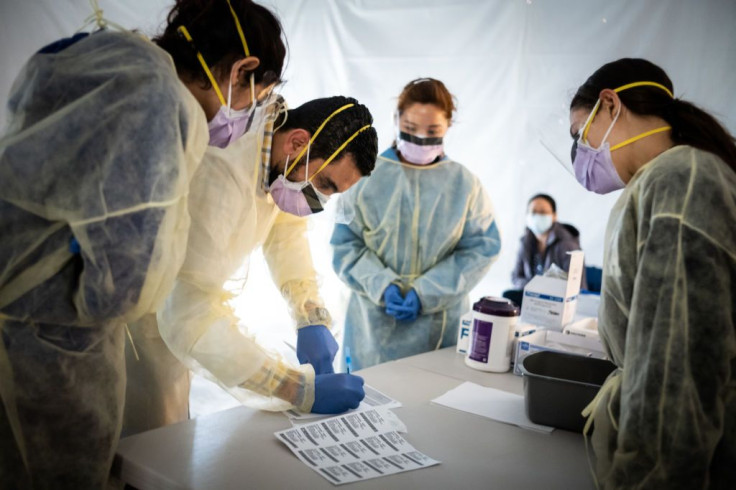Dr. Lorna Breen who works in the emergency room of the NewYork-Presbyterian Allen Hospital died by suicide this week. It was a piece of shocking news as the doctor has been tending to COVID-19 patients and was so dedicated to fulfilling her duties even if it was risky.
In fact, she caught the virus herself but recovered. Her father who is also a doctor told The New York Times that after recovering from the coronavirus infection, she returned to the E.R. just a week and a half later. It was said that since it was a risky situation, her family decided to intervene to convince her to stay home and brought her to their house in Charlottesville, Virginia where she took her life.
Now, her sister, Jennifer Feist and her husband Corey, recently appeared on “Today Show” to talk about her life and death. She stressed that the stressful working conditions in the E.R. as a frontline worker in this time of pandemic played a big part in her sister’s decision to end her life.
Feist further said that since her sister was also infected by COVID-19, she believes that the virus “altered" her brain that resulted for Breen to make such an extreme decision.
“She had COVID. And I believe that it altered her brain, and then she went back to the most horrific, unimaginable conditions,” Feist told show host Savannah Guthrie when asked if Breen’s work condition in the hospital was strenuous. “And for somebody whose life’s calling is helping people, and she just couldn’t help enough people. And the combination was just untenable.”
Feist went on to say that her sister worked more than 12 hours per shift in a surrounding that Breen described as Armageddon-like because of the massive number of people who are sick and they don’t have enough equipment to tend to them all. She also witnessed many deaths at the height of the COVID-19 pandemic and Breen felt bad that she was not able to help everyone.
Feist said that her sister told her, “There are so many sick people everywhere. I can't leave. Nobody's leaving. I have to stay and help.”
Because she can’t stop working and her workplace is always hectic, Breen’s family thinks that her mental health was affected. For speaking out to the public about her sister, Guthrie said that she hopes that health officials will support the mental and physical well-being of frontliners and other health care workers who work to save people from the pandemic.
"She couldn't stop working, and she certainly couldn't tell anybody she was struggling,” Feist said. “And that needs to be a conversation that changes. People need to be able to say they're suffering and to take a break."

© 2025 Latin Times. All rights reserved. Do not reproduce without permission.




